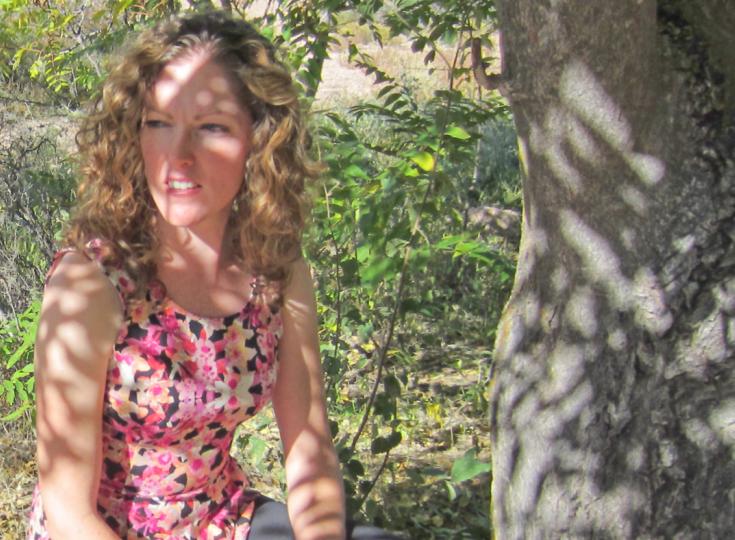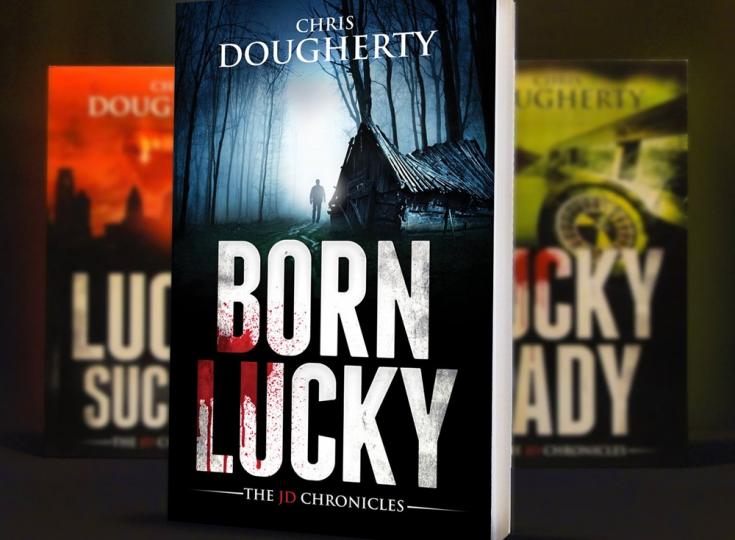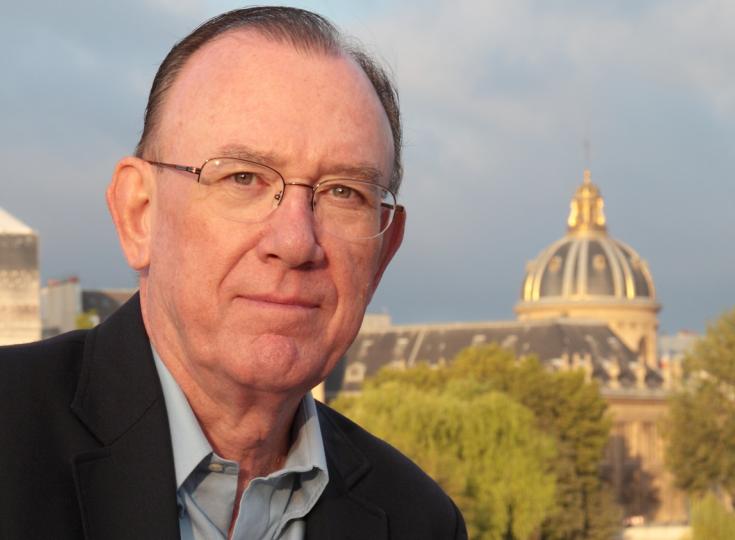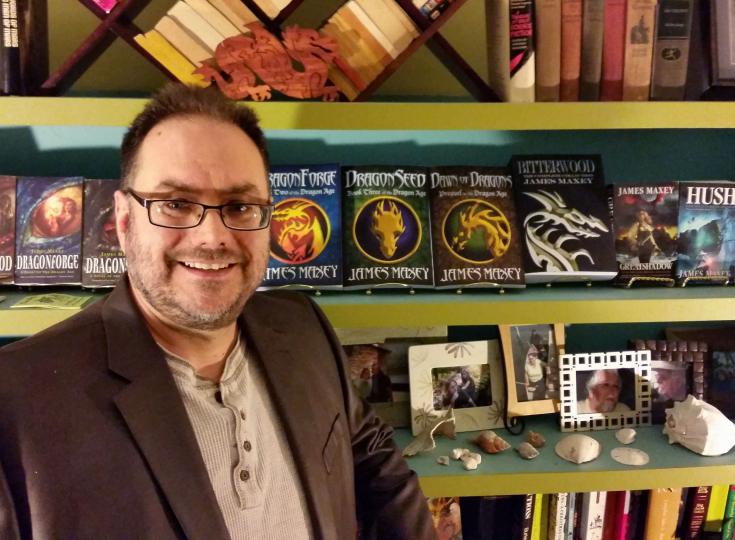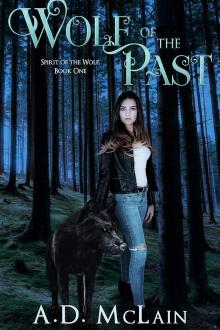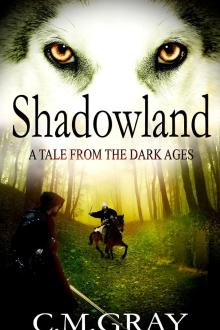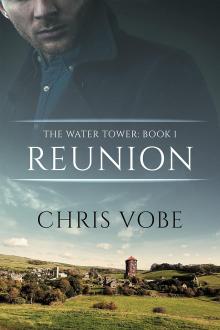Eric Madeen - A Captivating Love Story Set in the African Jungle
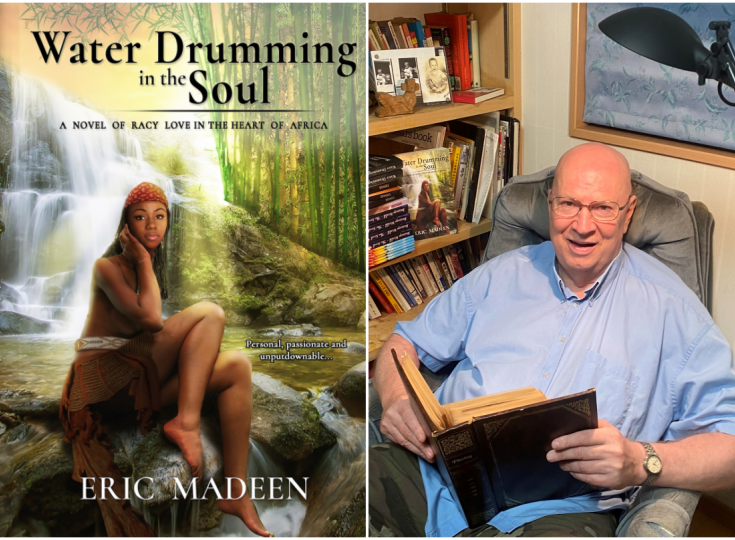
Eric Madeen is an associate professor of modern literature at Tokyo City University and an adjunct professor at Keio University. He's an award-winning, unclassifiable author of six books, and his writing has been published widely. From a very early age reading and writing have been as natural to him as breathing, and he once made his living copywriting for then-world's largest ad agency Dentsu for clients as diverse as Mazda, Subaru, Canon, Konica, Nikko Hotels International and Sony (Sony No Baloney!). For two-plus years he was a Peace Corps volunteer in Francophone Gabon, Africa, where he built a primary school complex in an equatorial village surrounded by rainforest, a mind-blowing experience that inspired his first book entitled "Water Drumming in the Soul: A Novel of Racy Love in the Heart of Africa." As our Author of the Day, he tells us all about this book.
Please give us a short introduction to what Water Drumming in the Soul is about.
It’s about many things, foremost a cross-cultural interracial relationship in a fictional country in the heart of Africa. It delves deeply into customs and culture clashes and the jumper cable sparks that fly when the lovers touch and fail to touch, with an incessant frisson there between them throughout. In the end, it’s not linear but rather circumambulatory and I’m told, modesty aside, a masterpiece for its ambitious scope and finally the multiple interpretations of what went down in the heart-wrenching end.
What inspired you to write this story? Was there anything in particular that made you want to tackle this?
I had two serious romantic relationships with Gabonese women when I lived in the heart of Francophone Gabon, Africa as a Peace Corps volunteer in the Rural School Construction Program. And each relationship was quite different but in the novel they merge and combine with other stories that touched my ear as a result of the largest project in all of Africa at that time occurring in Gabon, and that was the Trans-Gabonese Railway slicing it’s way diagonally through the heavily rain-forested country and in the process stirring up conflicts and scandals between the expat French and the host country nationals, making for fascinating stories. So this literary realism is further delved into with a good one-third of the novel being told from the third-person limited point of view of an African woman, limited meaning told from her point of view and consciousness.
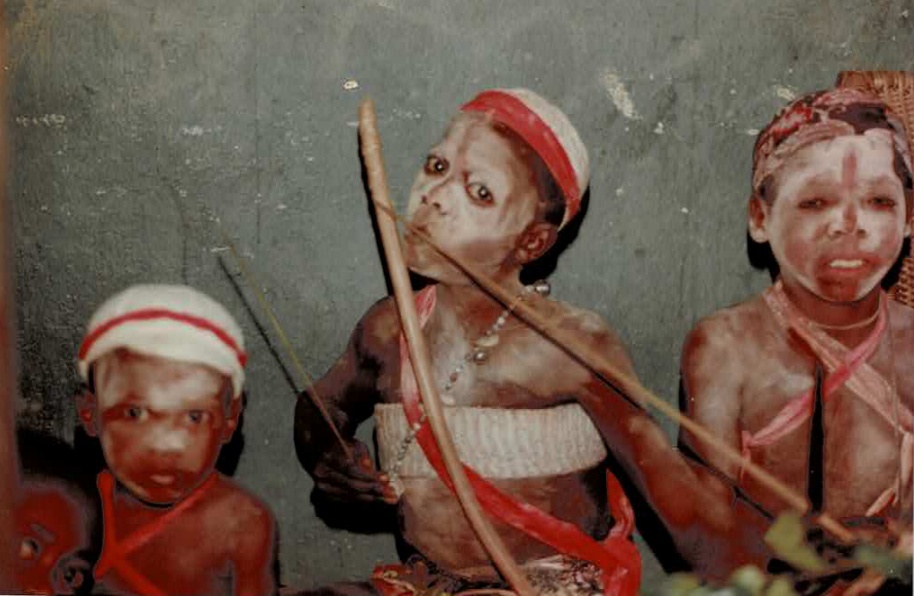
Tell us more about David Fields. What makes him tick?
David is driven by his youthful vigor and courage to venture far beyond the confines of America and also JFK-inspired idealism, since John F. Kennedy created the Peace Corps in 1961 and volunteers are still called Kennedy kids for realizing his vision for the organization which is three-fold: 1. Technical assistance in the developing world; 2. Cultural exchange; 3. Bringing back home to the U.S. that which is edifying, exotic, and fascinating … as a result of Peace Corps volunteers’ experiences overseas.
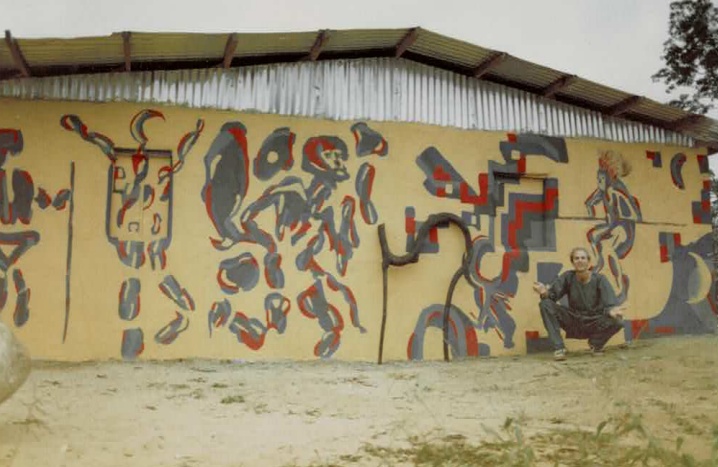
What makes Assam so special?
She’s an extremely beautiful and intelligent lady and quite round as a character while challenging the Zeitgeist, which was informed for so long, and unfortunately still is, by stifling cultural trends, nowhere more apparent than in Edward Said’s book Orientalism, which I rebut here: Specifically, if fiction writers aren’t allowed to write from points of view other than their own then we can’t have fiction.
Why did you pick equatorial Africa as the backdrop for your story?
Because as I mentioned I lived in Gabon for two and a quarter years, thus allowing me to strike where the metal is hot, with the realistic vibe the novel throws off crackling with tension and meticulously transcribed settings and characters thrumming with life.
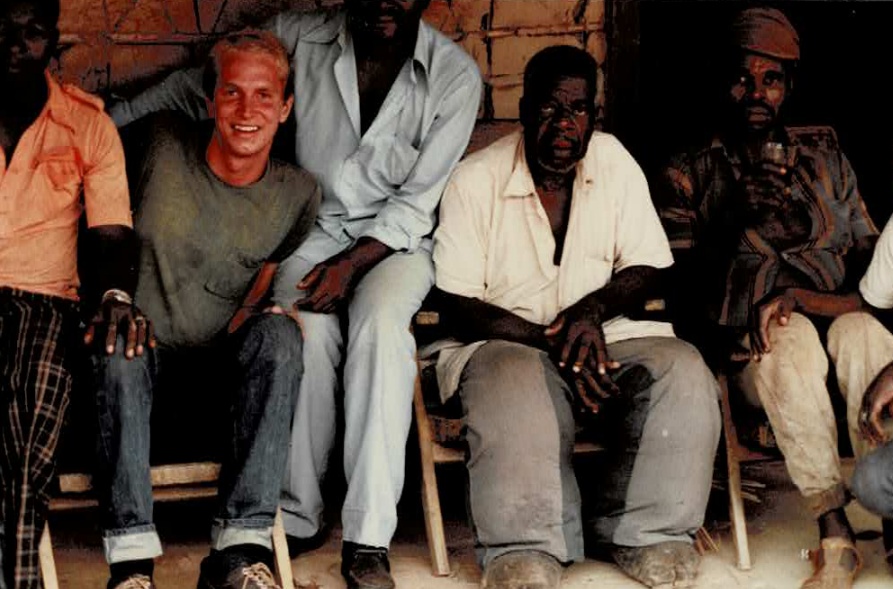
Have you always wanted to be an author? Tell us more about your writing journey.
Way back when I was in first or second grade I was writing stories inspired by the TV drama Batman and reading deeply and widely, with reading and writing both being as natural to me as breathing. I majored in journalism at the University of Arizona, and I first made my living as a writer, a copywriter, for then-world’s largest ad agency Dentsu headquartered in Tokyo; I copywrote for behemoth Japanese corporations from Mazda to Subaru, Canon to Konica, Nikko Hotels International to Sony – Sony No Baloney! Then I traveled for All Nippon Airways’ inflight magazine Wingspan, writing up adventures and full features about several Asian countries and cultures, with my trekking the length of Borneo being the most ambitious and now recognizable as In Conrad’s Wake. It’s first story in my travelogue Asian Trail Mix. A German photographer and I went all the way up to an upriver settlement called Berau. The world-renowned Polish-born, English novelist Joseph Conrad ventured there as a merchant marine, and his experiences there fed into his early Malaya quartet, the most famous being his novel Lord Jim. Dominique Giovannangeli, my esteemed editor then in Wingspan days, is still my editor today -- of books, stories, essays, etc.
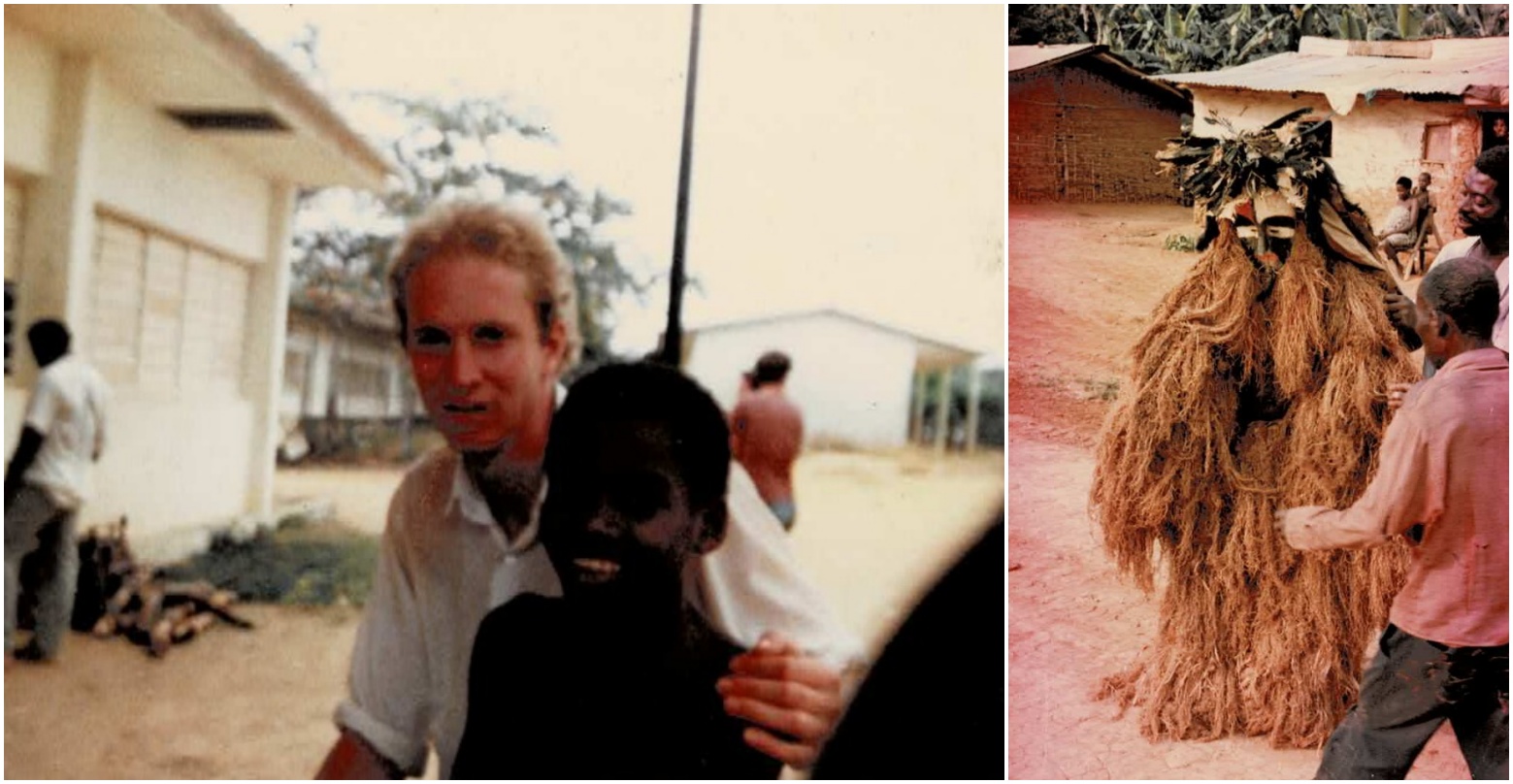
Why did you decide to include water drumming in the story?
That’s a great question and delights me, since it triggers many fond memories of Gabonese women and girls water drumming, i.e., playing as a drum the stream, river, pond, or lake while singing gloriously. It originated centuries ago with Pygmies in central Africa then spread to Bantu cultures throughout central Africa. Assam’s water drumming at the beginning of the novel captivates David on his first entry into the equatorial village of Nzafia and then becomes, in a sense, the hunter captured by the game.
Interesting cover, how did you decide on this design?
My cover designer Rusham Riyas is amazing. From Sri Lanka, he did five of my covers, each splendidly. I found him via a writers’ group on Facebook where he finds authors worldwide to do gigs with on a freelance basis. I told him what I wanted and had him read the beginning of the novel and after a few revisions he nailed it.
Do any of your characters ever take off on their own, refusing to do what you had planned for them?
Assam does and the shaman, or witch doctor, Zocka-Zocka proves to be a complex character as well, both gifts from my imagination and its play with reality. I’d like to think that one of the greatest successes of the novel is being able to empathize in a high-vibrational way with African characters, springing from my living, working and even hunting right alongside them at the grassroots level for over two years. Moreover, David’s village friends, the ones he works with, also lead him on hunts and campouts in the depths of the rainforest. I like to think that I got this fictional reality right in the novel by my actually having experienced this several times with my village mates and to encourage them to open up a la African oral tradition realized through folktales told around the fire, I’d bring a bottle of whiskey or gin to pass around. Circling back to Assam, she’s an intoxicating blend of orality and literacy, the latter learned in the fictional capital. She’s there in the village for treatment by Zocka-Zocka, a shaman of some renown. My imagination was also fed by my having read tons of books by African writers and Western as well. I should add that while out hunting alone I got lost for three days in a maze of elephant paths winding through virgin rainforest. I was hunting monkeys (yup, for the cooking pot) way up in the canopy and I followed them ... until I got all turned around. I shot a wildfowl on the third day which sustained me … This figures into the plot dynamic.
What did you have the most fun with when writing this story?
Another great question. The Japanese have a name for it, mugamushu, which means flow state, a fluid state of consciousness. I was able to experience mugamushu by my having solid blocks of time to write at set times each day so as to encourage the subconscious to bubble up so many precious gifts. This was when I was in the MFA program at San Diego State University. It was there and then that I wrote the lion’s share of the book, which I began back in the day in Gabon.
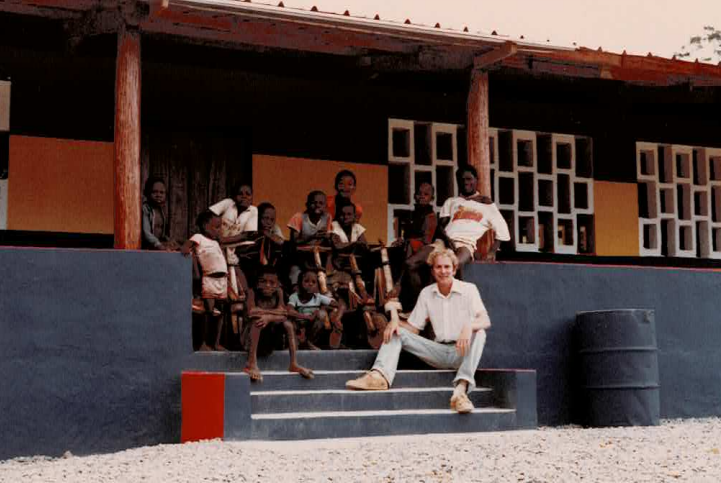
When starting on a new book, what is the first thing you do?
I try to imagine both a beginning and an ending, with the ending being chugged toward the planting of the flag. That makes for more of a solid throughline, or plot line.
Do you have any interesting writing habits? What is an average writing day like for you?
Now as an associate professor of English at Tokyo City University and adjunct professor at Keio University it’s gotten tougher to carve out precious blocks of time which then need to be defended against interruption. During spring break, I was able to find that precious time in which I wrote the short story “Sight Lines of Joseph Goldman,” which, the last I looked, was number one in the recent top twenty on East of the Web. I try to get right to the keyboard first thing in the morning then write well into the afternoon. After a late lunch I love to walk the backroads over the hill in Yokohama where I live; on such nature walks likened to forest bathing a trail of epiphanies are laid down in my mind, showing me the way literarily. It’s magical, precious, sublime.
What are you working on right now?
I just started a work of fiction I’m excited about. I don’t know yet what shape it will take but is being told from both Westerners’ and Japanese characters’ points of view and concerns comparative culture/conflict/assorted razzmatazz. I’ve lived in Japan for a few decades now and it’s still baffling what with all the undercurrents. Japanese culture is an extremely high-context one, with body language, tone of voice, expression, attire … all being read – x-rayed! -- as in Japanese being conditioned to read the room, pick up on the vibe through what’s not being said …and what is. Needless to say, the exterior doesn’t reflect the interior so it can be by turns deep and mysterious and perplexing and frustrating. Those who can’t read the room are termed KY, kuki yomenai, can’t read the air, the profound, layered and conflicting air of mystery and ambiguity that rides alongside it, with the listener thinking does s/he mean A., B., or C. Or all of the above? Or none ...!?!
Where can our readers discover more of your work or interact with you?
The best place to start is my website: www.ericmadeen.com. There five of my books are featured along with recent reviews, essays, interviews, and sundry. Especially notable is my investigative memoir entitled On Mission: Looking for Albert Schweitzer in Lambarene, Gabon. While studying intensive French at the beginning of Peace Corps in-country training in Lambarene, I made several journalistic forays to the nearby Schweitzer hospital there so as to write the memoir which was published on Peace Corps Worldwide and won me a Profile of Citizenship. My Amazon page is also prime territory especially since all the books have at least 70 reviews with most flowing in positive.
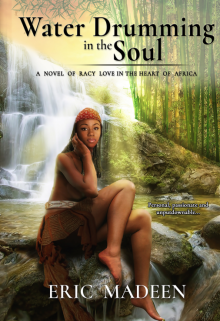
Fall under the spell. In this fiery tale set in steamy equatorial Africa, Peace Corps volunteer David Fields is on mission until he meets Assam. Captivated by her water drumming, her playing the stream as a drum, David is drawn to her but becomes the hunter captured by the game. And what a rollicking game of love it is - with a vibrancy between them that never dissipates … until the haunting end.
